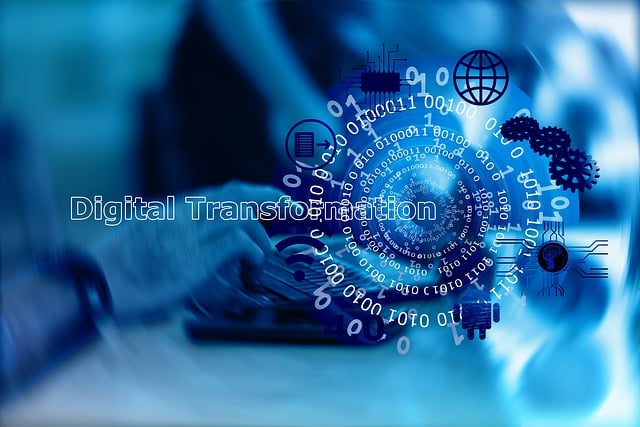The Evolution of AI in Trading: Transforming Investment Strategies
Author: Jameson Richman Expert
Published On: 2024-09-21
Prepared by Jameson Richman and our team of experts with over a decade of experience in cryptocurrency and digital asset analysis. Learn more about us.
In recent years, the landscape of trading has undergone a seismic shift, driven largely by the integration of artificial intelligence (AI) technologies. This transformation has not only changed how traders approach the markets but has also introduced a host of new opportunities and challenges. This article delves into the nuances of AI trading, exploring its mechanisms, advantages, risks, and future prospects.

Understanding AI Trading
AI trading refers to the use of machine learning algorithms, data analytics, and other AI-driven technologies to execute trades in financial markets. These technologies analyze large volumes of data at unprecedented speeds, allowing traders to make informed decisions and execute trades with remarkable efficiency.
The Mechanisms of AI Trading
At its core, AI trading relies on complex algorithms that process and analyze vast datasets. These datasets may include historical price data, trading volumes, market news, and even social media sentiment. The algorithms can identify patterns and trends that human traders might overlook, offering a data-driven approach to trading.
Data Collection and Analysis
- AI systems continuously gather data from various sources, including market exchanges, financial reports, and news outlets.
- Natural Language Processing (NLP) is often employed to assess news articles and social media posts, gauging public sentiment and its potential impact on market movements.
- Machine learning models are trained on historical data, allowing them to predict future price movements with increasing accuracy over time.
Execution of Trades
Once the AI system analyzes the data, it executes trades based on predefined criteria. The speed of execution can significantly impact profitability, especially in high-frequency trading environments. A few milliseconds can be the difference between profit and loss in the fast-paced financial world.
Advantages of AI Trading
The advantages of incorporating AI into trading strategies are plentiful, making it an attractive option for both institutional and retail investors.
Enhanced Decision-Making
By utilizing AI, traders can make more informed decisions based on data rather than intuition. This objective approach can mitigate emotional trading, leading to better long-term outcomes. It is crucial to recognize that emotions often cloud judgment, and incorporating AI can help remove that human factor.
Improved Efficiency and Speed
AI trading can process data and execute trades at speeds impossible for humans. An AI system can evaluate thousands of potential trades per second, allowing traders to capitalize on fleeting opportunities. This efficiency is critical in a world where even the slightest delay can result in lost profits.
Risk Management
AI can also enhance risk management by providing insights into market volatility and potential downturns. Algorithms can analyze market conditions and adjust trading strategies accordingly, potentially reducing exposure to losses. This proactive approach to risk management is invaluable in today’s highly volatile markets.
Challenges and Risks Associated with AI Trading
While the benefits of AI trading are significant, it is essential to recognize that challenges and risks accompany its implementation. Understanding these drawbacks can help traders make informed decisions.
Dependence on Data Quality
AI algorithms are only as good as the data they are trained on. If the underlying data is flawed or biased, the decisions made by the AI can lead to significant losses. This dependence underscores the importance of rigorous data validation processes.
Market Manipulation Risks
The proliferation of AI trading has raised concerns about market manipulation. Techniques such as "spoofing," where traders use AI to place fake orders to manipulate market prices, have become more prevalent. This illegal activity can erode market integrity and poses risks to unsuspecting investors.
Job Displacement Concerns
The rise of AI trading technologies has led to fears of job displacement within the finance industry. While AI can enhance trading efficiency, it also replaces traditional trading roles. However, it is essential to view AI as a tool that can augment human capabilities rather than a complete replacement.

The Future of AI Trading
As technology continues to advance, the world of AI trading is poised for further transformation. Several key trends are likely to shape its future.
Integration with Blockchain Technology
The combination of AI and blockchain technology presents exciting possibilities for trading. Blockchain can provide transparent, tamper-proof records of transactions, while AI can analyze this data for insights. This synergy could enhance trust in trading systems and facilitate real-time data analysis.
Increased Regulatory Scrutiny
As AI trading becomes more prevalent, regulatory bodies are expected to impose stricter guidelines to ensure fair practices. Adherence to these regulations will be crucial for the long-term sustainability of AI-driven trading strategies. Compliance can help foster a safer trading environment for all participants.
Democratization of Trading Strategies
AI trading technologies are becoming increasingly accessible to retail investors, allowing them to leverage sophisticated algorithms and data analysis tools once reserved for institutional investors. As these technologies democratize trading, individuals will gain the ability to compete more effectively in the markets. This shift can potentially level the playing field for retail traders.
Conclusion: Embracing the AI Trading Revolution
In conclusion, AI trading is revolutionizing the investment landscape, providing traders with unprecedented analytical capabilities and efficiency. As we navigate this rapidly changing terrain, it is essential to embrace the opportunities that AI presents while remaining vigilant about the associated risks. The future of trading is undeniably intertwined with AI, and staying informed and adaptable will be crucial for success.
As we look toward the horizon, the ongoing convergence of AI and trading signifies a pivotal moment in finance. Traders who are willing to adapt and integrate AI into their strategies may find themselves at a distinct advantage in this new era of investing. Ultimately, the question may not be whether to adopt AI trading, but rather how effectively one can leverage it for personal and professional growth.